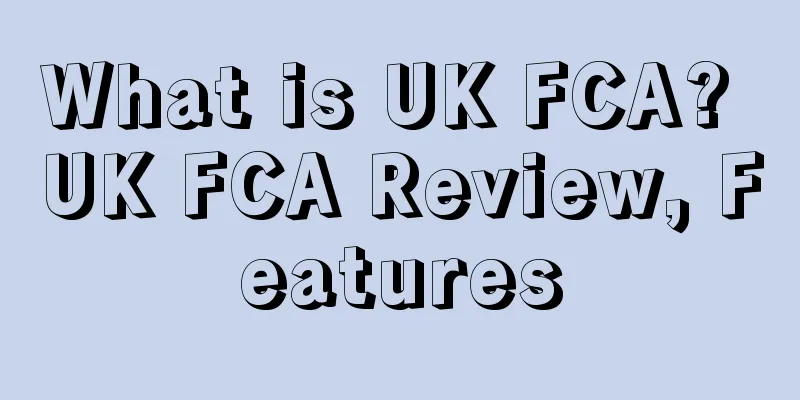What is UK FCA? UK FCA Review, Features

|
The UK FCA strictly supervises all financial services institutions registered in the UK through the Financial Services Authority.
About the UK FCA
UK FCA Services
UK FCA's objectives 1. Consumer protection - providing appropriate protection for consumers; 2. Safeguarding financial markets – protecting and enhancing the integrity of the UK financial system; 3. Promote market competition - promote market competitiveness related to consumer interests. |
<<: What is Yiwu Pay? Yiwu Pay Review, Features
>>: What is National Bank of Belarus(NBRB)? National Bank of Belarus(NBRB) Review, Features
Recommend
Attracting 10 billion won investment! Korean Brandy has great potential
It is reported that Korean Brandy plans to expand...
Amazon's front and back end are both stuck! Operations: I have no choice but to slack off...
“ I really can’t complain about the Amazon system...
What is Sluuf? Sluuf Review, Features
Sluuf is a C2C e-commerce website serving global s...
Reverse reasoning: How did the American DTC brand Senreve conquer the Chinese market?
Major DTC brands have been widely welcomed by Wes...
What is LeBoncoin? LeBoncoin Review, Features
LeBoncoin Free Classifieds is a well-known French...
What is Order Time? Order Time Review, Features
Order Time is a QuickBooks Gold Partner and the le...
Check yourself quickly, another "Made in China" product has been recalled!
Recently, the British Trading Standards Associati...
Cainiao and Huaxizi join hands to create a full-link logistics solution for Chinese products going overseas
Recently, in a warehouse of Huaxizi in southern C...
Cainiao appeared at the International Postal Annual Summit and its global logistics capabilities were recognized
IPC was established in 1989 and is composed of 25...
What is Cross-border Payment? Cross-border Payment Review, Features
Cross-border Collection Service is a simple, fast...
Amazon is doing something! 5% of sales will be returned to sellers
It is understood that Amazon Logistics (FBA) rece...
The Port of Los Angeles in the United States seized counterfeit goods worth tens of millions from China!
According to foreign media reports, the U.S. Cust...
What is Amazon VCS? Amazon VCS Review, Features
VCS stands for VAT Calculation Service, which is ...
The best seller in Shenzhen! Henan brand became the leader in the vertical category in three years
Recently, Onesight released the "2023Q3 TOP3...
Russian Ozon consumer trust reaches 73%
On August 30, according to foreign media reports,...









